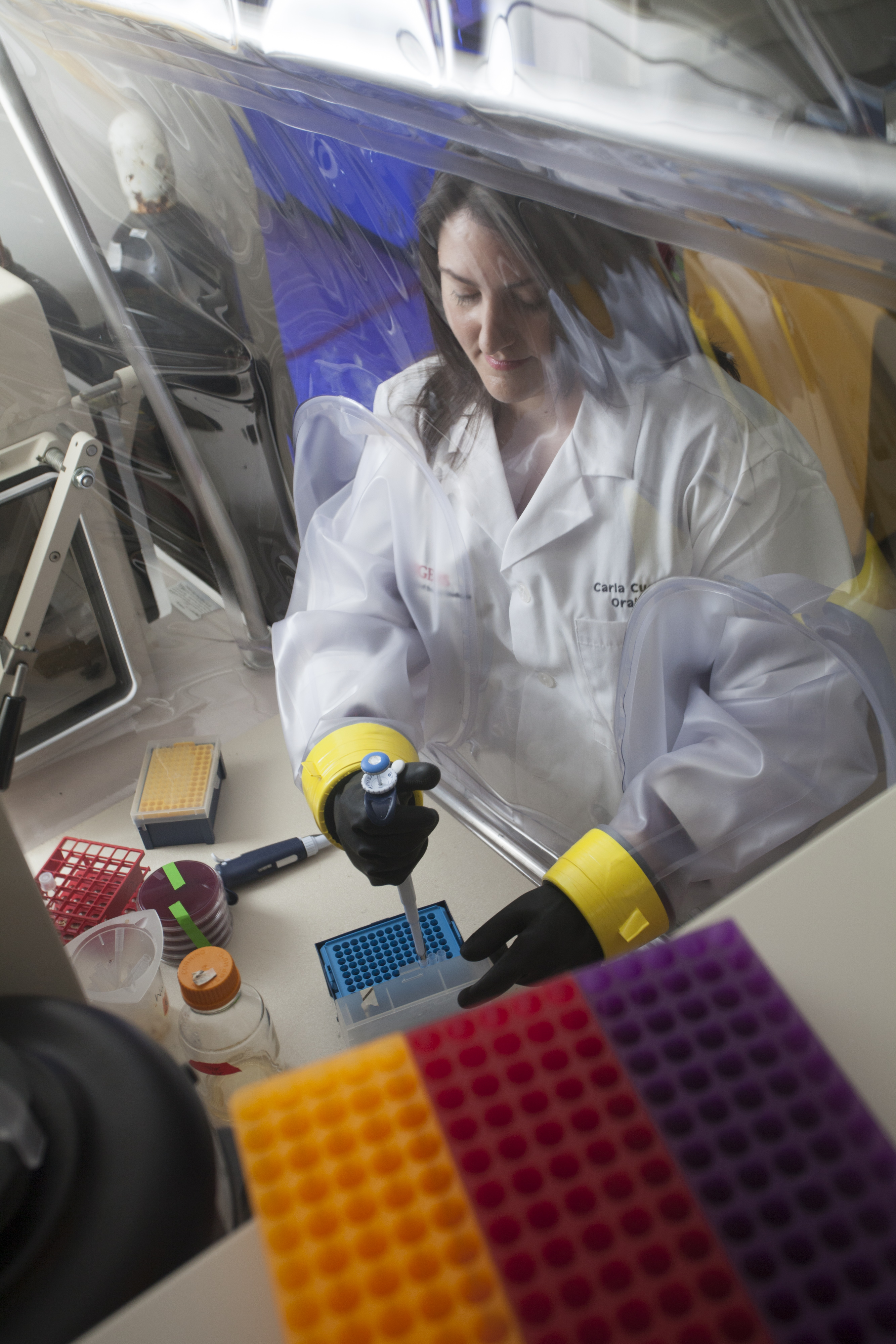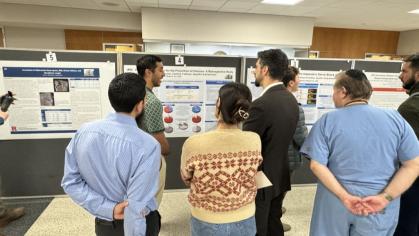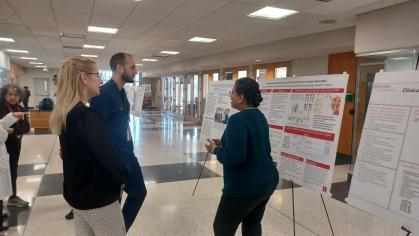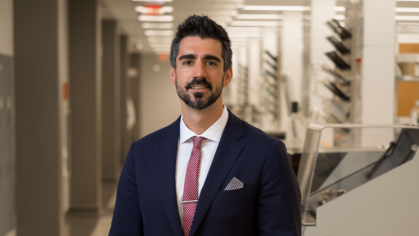Moving Beyond Dentistry To Find Potential Cures for Cancer, Chronic Pain
 RSDM microbiologist Carla Cugini studies how bacteria communicate with each other. She hopes her work can one day be used to fight disease.
RSDM microbiologist Carla Cugini studies how bacteria communicate with each other. She hopes her work can one day be used to fight disease.
Research at Rutgers School of Dental Medicine (RSDM) has radically redefined how the disciplines of dentistry and oral health care can yield potential treatments for systemic diseases such leukemia, tuberculosis, and Middle East Respiratory Syndrome (MERS). Other studies have deepened our understanding of how the human body fights infection and tolerates pain.
In fiscal year 2015 we received more than $11 million in funding, including three federal grants for research into treatments for cancer, drug-resistant pathogens, and a rare, genetic form of periodontal disease that strikes up to 2 percent of African-American adolescents. In 2014 we were awarded $4.5 million in funding.
Most of our major research takes place at RSDM’s Center for Oral Infectious Diseases, which focuses on the study of bacteria, and the Center for Temporomandibular Disorders and Orofacial Pain, which specializes in clinical research into the causes and treatment of pain.
At the Center for Oral Infectious Diseases, researchers have made great strides in exploring how bacteria drawn from the oral cavity can be used to eliminate toxins that attack the body’s immune system. The work they produce is unique among dental schools, and their findings have been truly revolutionary. In fiscal years 2014 to 2015, the department received three grants from the National Institutes of Health (NIH) and one from the Defense Advanced Research Projects Agency (DARPA), part of the U.S. Department of Defense.
Under the leadership of Daniel H. Fine, chair of the Department of Oral Biology and associate dean for research at the Graduate School of Biomedical Sciences, the center pinpoints organisms found in the mouth and uses them as the basis for broader research that could lead to promising treatments for mucosal infections, including respiratory and gastrointestinal illnesses.
“Our strategy has been to take the knowledge bacteria have acquired over a million years to protect themselves,” says Fine. “How did they figure out how to survive in a world that doesn’t want them? We want to use them to develop novel anti-infectious organisms and methods. If we learn what they’re doing, we can use it to apply to many forms of disease.”
Studying terminal and severe illnesses often requires invasive procedures, such as drawing samples via biopsies and colonoscopies. In contrast, collecting material from the oral cavity is quick and painless, and it can produce breakthrough findings that can be broadly applied, according to Fine.
His team’s research is distinctive because it studies interrelated evidence from multiple perspectives. “We have cell biologists, structural biologists, microbiologists all looking at things from their point of view,” says Fine.
Another magnet for innovative research at RSDM is the Center for Orofacial Pain, which has positioned itself as an international leader in the field. Its faculty members have been instrumental in establishing the study of chronic orofacial pain as an emerging specialty worldwide. “We examine how the pain system copes under chronic conditions,” says Rafael Benoliel, director of the center and associate dean for research at RSDM.
The center has been especially successful at garnering widespread medical recognition of certain clinical phenotypes, or clusters of symptoms, to improve diagnosis and treatment. “We transfer ideas from bench to chairside,” says Benoliel.
In the past two years the Center for Orofacial Pain has been conducting studies on how the body processes pain and experiments with topical analgesics and other methods of treating pain.
In addition, researchers at RSDM have patented inventions of various types of medical technology and worked closely on clinical trials for Colgate-Palmolive and other companies.



